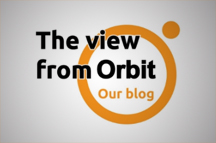 Following the debacle over CBI Scotland’s declaration of support for Better Together, it takes a brave organisation to nail its colours to the indyref mast. But that is exactly what happened last weekend when the Sunday Herald became the first national paper to formally declare a stance on the referendum – it’s backing a Yes vote.
Following the debacle over CBI Scotland’s declaration of support for Better Together, it takes a brave organisation to nail its colours to the indyref mast. But that is exactly what happened last weekend when the Sunday Herald became the first national paper to formally declare a stance on the referendum – it’s backing a Yes vote.
Whilst Yes Scotland’s Blair Jenkins hailed the Paper’s editorial as “passionate, inspiring and, above all, a statement of common sense and irresistible logic”, Better Together noted that the decision was “not exactly a surprise”.
Following its announcement, the Sunday Herald quickly committed to ensuring that its coverage of the debate would remain balanced. But, regardless of its stance, how much influence could this editorial decision really have?
Well, on the surface the answer appears to be not very much. Even if the Paper set out to persuade every reader, compare the Sunday Herald’s circulation – less than 24,000 – with the number of people registered to vote in the referendum – over four million.
However, the Sunday Herald’s contribution should not be written-off as a drop in the ocean. Firstly, much of the paper’s readership is based in Glasgow – a city vital for both campaigns. And secondly, with polls showing the gap between the two camps narrowing, the broadsheet’s very public endorsement could have a broader, if more subtle, effect on its target audience.
Polling shows ABC1 (middle class) voters are considerably more sceptical about independence than their C2DE (working class) counterparts. When undecided voters are stripped out, 58% of ABC1 voters intend to vote No in September, according to an ICM poll from April, whereas 53% of C2DE voters are planing on voting Yes. Could the Sunday Herald’s decision to emphatically back a Yes vote, at a time when most commentators credit Yes Scotland with the political momentum, swing at least some ABC1 voters towards backing independence? Quite possibly.
 Of course, the Sunday Herald’s decision to ‘go public’ comes with risks too. Aside from the possibility that the paper has alienated a chunk of its readership, its decision to back a Yes vote may also encourage other papers to overtly back a campaign. Indeed, Better Together has already confidently stated that “Newspapers are perfectly entitled to back one side or the other, and we would expect a number of Scottish newspapers to support Scotland remaining in the UK.” Unfortunately for the Yes camp, many of Scotland’s pro-UK papers command circulations in the hundreds of thousands, rather than tens of thousands.
Of course, the Sunday Herald’s decision to ‘go public’ comes with risks too. Aside from the possibility that the paper has alienated a chunk of its readership, its decision to back a Yes vote may also encourage other papers to overtly back a campaign. Indeed, Better Together has already confidently stated that “Newspapers are perfectly entitled to back one side or the other, and we would expect a number of Scottish newspapers to support Scotland remaining in the UK.” Unfortunately for the Yes camp, many of Scotland’s pro-UK papers command circulations in the hundreds of thousands, rather than tens of thousands.
Overall then, the Sunday Herald’s endorsement has certainly been an important development and it has offered us some insight into the prospect of success for both Yes Scotland and Better Together. But with the polls narrowing and the stakes getting ever higher, which organisations will be next to make their mark on the independence debate?
Robin Murphy
Account Executive - Orbit Communications














